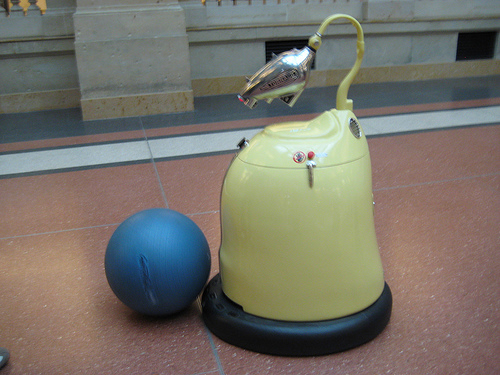 I am working with Jenny Hughes on some research for the Mature project. And in the course of developing a few research proposals Jenny asked me what Layered learning is. I had to admit I didn’t know. So it was off to Google. And up came an abstract of a paper by Kumar, Torr and Zisserman which contained the wonderful phrase “efficent, loopy belief propagation.” Wow!. I wish I had written that.
I am working with Jenny Hughes on some research for the Mature project. And in the course of developing a few research proposals Jenny asked me what Layered learning is. I had to admit I didn’t know. So it was off to Google. And up came an abstract of a paper by Kumar, Torr and Zisserman which contained the wonderful phrase “efficent, loopy belief propagation.” Wow!. I wish I had written that.
Layered learning seem to have been developed by researchers working to program robots to play football. And basically it refers to breaking down skills and knowledge into a series of hierarchically defined layers. So you might teach a robot to kick the ball and to run. And you might teach them to watch what the other team is doing and to be aware of where their own team robots are and so on. And at the end of the the day you synthesis the different layers of learning to develop a football playing robot. Jenny questions whether people learn in this way. Of course sometimes we do synthesize chunks of learning to carry out a task. But just as often we may analyse a whole chunk of learning to derive the different skills and knowledge from it. In that way we can distinguish analytic learning from synthetic learning. And layered learning appears to focus solely on the synthetic learning process.
Be glad to hear from anyone who knows more than me about this.